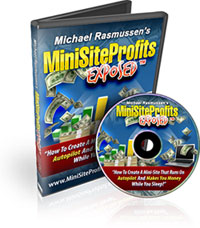Top Home Businesses: More Handy Tips About Writing Articles
Download Free Copy Of The Expert Guide To Article Marketing
We've discussed some of the very sound reasons why you should learn to write articles, in order to grow your online business into one of the top home businesses. It's been established that this is an extremely effective means of drawing traffic to your website, and you'll be surprised how easily the words will flow, once you get rolling.
Firstly, format your articles to comply with the standards required by the Directories:
1. Use a very simple, plain font, such as Arial and use about size 12. The editors will not be impressed by a fancy font, which may interfere with the conversion into a text format.
2. Format your lines to about 50 characters per line, including spaces. This fits the most common line sizes used by the Article Directories.
3. Plan your article to be between about 450 and 600 words long. Remember that your readers are looking for clear, concise information. Anything too long may discourage them from reading the whole article, yet it must be long enough to cover your subject matter.
4. Use simple, plain language that's easy to read and to understand. You'll not win any points for flowery language, and complicated sentence structures. As a golden rule, keep paragraphs quite short; no more than about three sentences.
5. If you use numbers or bullet points for a list of items, separate items by using line spaces, as has been done in this article. This is to handle the auto-format function used by some directories. The auto-format box should then be un-checked.
A suggested plan is to jot down a brief framework for your article, starting with a title which clearly covers your subject matter. Remember that your potential readers are looking for useful information about something, so your title should be clear, eye-catching and should aptly summarize the content. They'll ask themselves,"Do I want to read this?" The answer is more likely to be affirmative if the title is eye-catching, and if it implies that the content will be useful to the reader.
You'll need to start off with an introductory paragraph, which briefly indicates the subject matter or content of your article. The introduction can also be used where there's a need for a brief summary of the article, as required by some directories.
Proofread your article several times before submission, checking especially for spelling and grammatical errors. You have the assistance of the spell-check and word count to assist you through the process .You'll not have your article published if it's littered with spelling errors and poor grammar or punctuation.
Your final paragraph should be some form of conclusion, and may include a final point of information or advice.
In conclusion, proofread once more! You'll want to be recognized for the quality of your articles, and become known by the directories. This won't happen if components of your work are sub-standard, or if your articles don't adhere to the standards laid down by the main directories.
I trust that this information will be useful to you in starting off in this all-important aspect of promoting your business.
About the Author: Mike Muir has personally been through these experiences and has invested both time and money in selecting those options which are most effective for getting a new online business on track. He is happy to share these with you. Please visit his site at:
http://www.mikeshomebiz.com/ for information about online business opportunities and visit his blog at: http://www.mikeshomebiz.com/blog for more articles.
Wednesday, September 10, 2008
Top Home Businesses: More Handy Tips About Writing Articles
Subscribe to:
Post Comments (Atom)






No comments:
Post a Comment